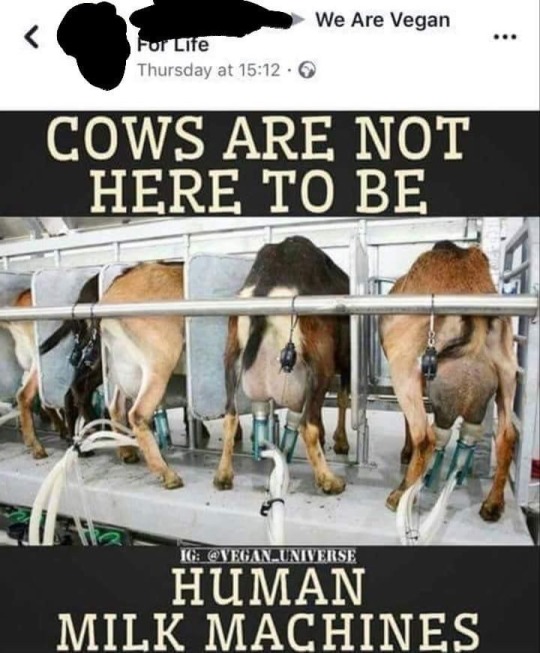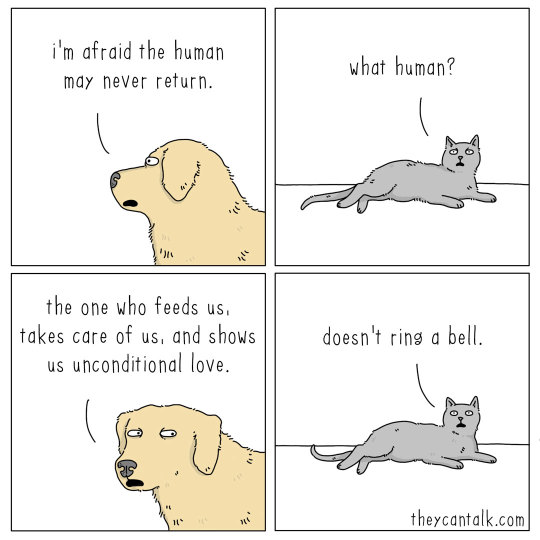Note
Why do you strawman so much? Why do you need your beliefs to be true so badly? What's in it for you? Happiness? Money? Compassion for others? What is your driving factor?
Strawman what? This was incredibly random!
What’s wrong with having beliefs and values and morals that don’t a line to your own when my ultimate goal is to ensure affordability for all food? To have more people able to grow a little of their own foods and meat if they have the land to do so?
I like to think I have compassion for everyone and everything. I give of my time money and resources to others in need. I share my knowledge and experiences. I share my time to help.
I am very happy doing what I do and most days for me are actually very joyful and fulfilling. I truly enjoy my work and I enjoy helping people.
As for money. All I will say is have you ever met a rich farmer? Never in my days. Shareholder, businessperson or producer maybe. But never a farmer. We turn every cent back into the farms without much for ourselves. Only people that get rich from farms is those that sell them, usually in smaller chunks for subdivisions sadly.
5 notes
·
View notes
Note
I’m not going to lie, as a vet student in an agri uni, as in someone who learns and works this shit, your posts are so wrong it’s almost funny. My favourite is the using a calf as ah image of a ‘happy milking cow’. Ftr 50% or so of the US dairy herd are continuously housed
Please do some proper research into the industry and stop glorifying it, even pro animal agricultural people need to acknowledge there’s downside and harm to some practices, you just need to make an argument the pros of animal ag our weight the cons, if you won’t even acknowledge the cons, or acknowledge animal agriculture beyond idyllic children’s book versions, you can’t make an effective argument
Well first off. The U.S is not the whole world? I’m not American either. Which never fails to amuse me, there are animals in other countries! I would have assumed you would understand that and how not all methods or regulations are the same from place to place. If you know one small area.. that doesn’t mean the entire world practices the same methods as your small area does.
I live in Canada. Northern Canada at that. Our summers are basically 2 months long and yet we do allow the animals outside. Even in winter! As a “vet student”. You should know that a happy content animal will stay where it is most comfortable. That’s a sign of good management and proper comfort levels. Non stop food, deep comfortable bedding. Plenty of warmth/coolness as they desire. Even as a person wouldn’t you prefer to be at home then play outside? Certainly the animals can go out but studies have proven so much the animals enjoy being inside and with the increase in dairy production to show this, we’ve slowly moved to inside only. Like the current wfh movement. If you can work from home why wouldn’t you? Same as animals.
As a “vet student” you have a very negative look onto the animals you will be treating one day so I’m not sure why you are in that line of work? As a “vet student” you know you will have to deal with all aspects of farming and pet care that will be unpleasant. But must be done for the sake of the animals. You dislike farming but your ok with backyard breeders? The current trend of poorly bred deformed animals for cuteness? But your platform for change is, well cared for dairy cows and farming methods you don’t understand yet? Eating animals? Eating a beef bred cow that’s never knows hunger or pain is worse to you then a crippled cat that’s kept alive with constant meds and human intervention? How else will the cats you treat be fed? They do need meat .. unless you haven’t reached the part that vegan fed cats live shorter lives with far more health issues then meat fed, that part of the curriculum will be covered in the nutrition course, as well as the long term effects part. As eyesight, liver failure, musculoskeletal issues and so forth are all affected by diet.. have you been over the sources and causes for rickets yet? This will be a factor you’ll learn.
Snakes? Lizards? Mice raised for pet food consumption is another method of farming you know. Unless small animal lives are not a concern? I know for many activists they are only a concern if they are in large numbers in a facility somewhere as farming methods that kill them are not a concern as long as it’s for crops that feed people.
I’ve never glamorized farming. I’m honest about the issues and troubles when asked. But I’m also going to call out people that assume they understand farming because they read a few things online and watched a video, thinking that makes them able to understand all aspects of farming when they’ve never stepped foot on a farm or even seen an animal up close. Like in this situation, I’ll happily take advice from my vet. But not the “vet student” as the vet has learned and has experience.. the student is learning and needs an open mind to do so.
6 notes
·
View notes
Text
Annoying that dairy products are demonized as Unnatural and Disgusting when it's actually kinda neat that humans figured out a way to fulfill omnivorous nutritional requirements without killing any animals (and populations historically dependent on dairy even evolved lactase persistence!). This is biopunk to me
49K notes
·
View notes
Note
Thank you so much for your posts. Genuinely. All this vegan misinformation is so infuriating.
Came across a tag to go vegan to stop cancer and it infuriates me. Attacking the food sources of sick people? They already are suffering and dealing with the most emotional and devastating issue anyone can face, then along comes someone to preach “if you where vegan you’d be cured/it will help you”
These people need to stop and think before talking. They go on about empathy for animals but have none for the sick. Actively preying on emotions and illness to try and force someone’s way of thinking because they want them to go vegan. How cruel and wrong is that?
9 notes
·
View notes
Text
Could you give us some sources for this?
I mean as a farmer I would love to know where I should be buying and adding these growth hormones and how much I should be adding because we didn’t get trained for that during college. Does it add to the profit margin?
What vaccines are in the meat? Should I be adding special ones for the consumers?
Stress hormones? Yea if I don’t feed them on time I admit they will get stressed out. We farmers are to blame for the worlds stress.
How do I add the heavy metals too? Do I grind up something and feed it to them? Could I buy a metal block to let them lick?
Please enlighten me where the training is for all these items to be covered in the future.
Nourishment - my personal diet and reason.
For the most time of my life, I ate meat, chicken, fish, loved roasted duck, BBQ and seafood, pizza and wine. It was nice for the time being. If you are interested in naturopathy, you start to understand how the body works and every speech you are listen to, provides another piece of the puzzle and you start to see a bigger part of the picture.
Now, I am vegan, avoid gluten, don't drink alcohol and I never smoked.
What is good for us and what is bad..?
Everything from animals is not a part of our food! Humans are naturally vegan beings...with the opportunity to eat meat to prevent us from dying by starvation. The human gut is very long - that indicates a plant based diet. If we eat meat, we should not eat plants or everything else for 24 hours that the body can digest the meat; if we eat plants in addition (salad/fries etc), the body digest the preferred plants and the meat is rotting in the gut and produce toxins, smelling gas and constipation. The gut protects the body against the toxins by putting a protective layer on the surface of the gut which prevent also the good nutrition to enter the body. We are eating but starving the same time because of the protective layer. Animal products literally damage every system in our body, poison us and lead to manifold diseases and shortens the life span.
The recommended diet is the palaeo diet without meat.
What do we find inside animal products?
Our domestic animals do not get their natural food - oftentimes, it is connected with malnutrition and cannibalism because protein powder is not everytime plant based. To get more meat and milk, animals are generally GMO; genetic modified organisms - Frankenstein cows give Frankenstein meat and milk (not to speak from the puss inside the milk because the cow breasts are chronically inflamed).
What contains meat?
Grow hormones (people get taller);
Vaccines (consumers get an overload of vaccine);
Stress hormones (consumers get mood swings);
heavy metals and toxins our body is not able to detox; that is why everybody's liver and kidneys are impaired.
Milk is a special case - in every way harmful!
Cancer, diabetes, allergies, arthrosis, inflammations, multiple sclerosis...you name it - you get it. You may ask why we have that harmful food...well; industry, commercials and money...nobody cares about you - YOU are responsible to care about yourself.
There are several reasons we eat meat. In the European area, we had the Oak tree which gave us their nuts and we used them to make flour and bread (in northern Europe, the bittern had to removed by washing). The Oak trees were been burned and our best sources of nutrients were been removed - people starved and died; that was been the time, people started to eat meat. Later, we made bread out of wheat which contains gluten; another holocaust to the body. Today, everyone's body is damaged by gluten and the stronger allergic reaction is knows as celiac disease. Gluten (in cooperation with Glyphosate) damages the colon until the content of the colon enter the body up to the brain; all kind of allergies, body functions and even mental health problems occur...so - better live gluten free.
The stores are full of poison - we should be aware about that. To prepare the food by ourselves gives us more control about what is inside. The industrial agriculture empties the fields that plants only contain 10% of their actual nutrients...another point why people today eat meat. You need to know how to get the required nutrients. Luckily, there are enough vegans today to get all necessary informations. Everybody need to get supplements - vegans and meat eater. We are lacking of minerals more than vitamins and everyone is affected.
Of course, there is the ethic reason. Animals feel the same emotions like humans; they are mammals like we are and a cow gives milk only while pregnant; a cow get raped to give milk, the calf will be taken away from the mother cow who cries for weeks for the baby. The calf is already slaughtered and served for a customer at a restaurant.
Humans really created a global holocaust and hell for our fellow animals on earth.
At last, there is a spiritual reason we should not eat meat. I was never a spiritual person and I am still an atheist but I cannot ignore fundamental truth. Everything is made of energy and information; that is the essence of the universe. If we consume meat, it is fullfilled with torture energy and this is contaminating our energy fields.
Humans are genuinely emphatic, loving and caring. Look at the world and you will see that we lost our way...it is time to get back to our roots for the good of the whole world.
318 notes
·
View notes
Text
I find people that randomly come up with “facts” they just made up so they can create a post way more annoying actually.
Anti-vegans are 1000x more annoying than the most annoying vegan. As well as being WAY more materially harmful to the world, with how they prop up the animal agriculture industry. Facts.
89 notes
·
View notes
Text
Ahh. Coming from a family that has hereditary cancers I can give a few talks on this.
From six siblings. I have had polyps removed a few times and am constantly checked. The other five have been clear to date. My father died of colon cancer however.
A person with an average risk of colorectal cancer has about a 5% chance of developing colorectal cancer overall. Generally, most colorectal cancers (about 95%) are considered sporadic, meaning the genetic changes develop by chance after a person is born, so there is no risk of passing these genetic changes on to one’s children. Inherited colorectal cancers are less common (about 5% to 10%) and occur when gene mutations, or changes, are passed within a family from 1 generation to the next (see below). Another 10% to 15% of colorectal cancers are diagnosed in people with a family history of colon or rectal cancer but not a known inherited condition (see below). More often, the cause of colorectal cancer is not known. However, the following factors may raise a person’s risk of developing colorectal cancer:
Age. The risk of colorectal cancer increases as people get older. Colorectal cancer can occur in young adults and teenagers, but the majority of colorectal cancers occur in people older than 50. For colon cancer, the average age at the time of diagnosis for men is 68 and for women is 72. For rectal cancer, it is age 63 for both men and women. Adults 65 and older who are diagnosed with colorectal cancer face unique challenges, specifically with regard to cancer treatment.
Gender. Men have a slightly higher risk of developing colorectal cancer than women.
Race. Black people have the highest rates of sporadic, or non-hereditary, colorectal cancer in the United States. Colorectal cancer is also a leading cause of cancer-related death among Black people. Black women are more likely to die from colorectal cancer than women from any other racial group, and Black men are even more likely to die from colorectal cancer than Black women. The reasons for these differences are unclear. Because Black people are more likely to be diagnosed with colorectal cancer at a younger age, the American College of Gastroenterology suggests that Black people begin screening with colonoscopies at age 45
Colorectal cancer may run in the family if first-degree relatives (parents, brothers, sisters, children) or many other family members (grandparents, aunts, uncles, nieces, nephews, grandchildren, cousins) have had colorectal cancer. This is especially true when family members are diagnosed with colorectal cancer before age 60. If a person has a family history of colorectal cancer, their risk of developing the disease is nearly double. The risk further increases if other close relatives have also developed colorectal cancer or if a first-degree relative was diagnosed at a younger age.
Rare inherited conditions.Members of families with certain uncommon inherited conditions have a higher risk of colorectal cancer, as well as other types of cancer. These include:
Lynch syndrome, also called hereditary nonpolyposis colorectal cancer (HNPCC)
Familial adenomatous polyposis (FAP)
Attenuated familial adenomatous polyposis (AFAP), a subtype of FAP
Gardner syndrome, a subtype of FAP
Juvenile polyposis syndrome (JPS)
Muir-Torre syndrome, a subtype of Lynch Syndrome
MYH-associated polyposis (MAP)
Peutz-Jeghers syndrome (PJS)
Turcot syndrome, a subtype of FAP and Lynch Syndrome
Inflammatory bowel disease (IBD). People with IBD, such as ulcerative colitis or Crohn’s disease, may develop chronic inflammation of the large intestine. This increases the risk of colorectal cancer. IBD is not the same as irritable bowel syndrome (IBS). IBS does not increase your risk of colorectal cancer.
Adenomatous polyps (adenomas). Polyps are not cancer, but some types of polyps called adenomas can develop into colorectal cancer over time. Polyps can often be completely removed using a tool during a colonoscopy, a test in which a doctor looks into the colon using a lighted tube after the patient has been sedated. Polyp removal can prevent colorectal cancer. People who have had adenomas have a greater risk of additional polyps and of colorectal cancer, and they should have follow-up screening tests regularly (see Screening).
Personal history of certain types of cancer. People with a personal history of colorectal cancer previously or a diagnosis of ovarian cancer or uterine cancer are more likely to develop colorectal cancer.
Physical inactivity and obesity. People who lead an inactive lifestyle, meaning no regular exercise and a lot of sitting, and people who are overweight or obese may have an increased risk of colorectal cancer.
Now. Trying to say going vegan helps really isn’t helping anyone. You should be stressing how people should get checked and screened more often and don’t listen when doctors say “your young. You don’t need this”. Heck yes. Get checked. Get another doctor and get those tests done. Get the cancer removed as soon as possible rather then hope a diet fixes it for you.
As more and more people under 40 are dying of colon cancer, and as someone at high risk of colon cancer, I have some advice for you.
I come from a long line of people who died early from colon cancer. It's the kind of family that doctors do medical studies on because colon cancer is so prolific. My dad, my grandmother, a bunch of cousins all had colon cancer and very few survived. I had to get colonoscopies every three years from when I was 31. And every time they had to remove at least three precancerous polyps. (My first one the doctor was visibly upset when he came to give me the results, in the "you're gonna be dead by 50" way. Because as you age you start to get more polyps, I think?)
For unrelated reasons, I went vegetarian about 14 years ago. Started eating a diet that was low in processed food and high in vegetables and legumes. My colonoscopy about a year after I went vegetarian was another polyp-fest. And then...
I have had one itty-bitty, teensy-weensy baby polyp removed in the past 12 (13? COVID times are weird) years. They have officially moved me to the every-five-years schedule, which is a HUGE success. I recognize that this qualifies as anecdata, but it's notable that my cousins who have been vegetarian or vegan for years are also generally polyp free while my meat-eating cousins are very much not.
(Also, they say diverticula can't be cured but mine are measurably smaller than they were several colonoscopies ago, so...who knows?)
If you too come from a family with a high prevalence of colon cancer, consider being a vegetarian or a vegan. It could help.
33 notes
·
View notes
Text
A little something that got me annoyed today.
They picked the time and date for the animals last moments. But when a farmer does it before the animal suffers at all. It’s wrong? But it’s ok when a sanctuary does it. Talk about double standards.
The animal suffered issue after issue. Forced to go on with medication and treatments and vet stays. Massively stressful on an animal. But as long as the animal kept living right?
13 notes
·
View notes
Note
That’s my point. If you read the years he states as a farmer. Then all the areas he has tried to make a go in. Then add in 4th gen. It doesn’t add up or make much sense. You don’t have a ranching area and suddenly try to do dairy. Now if you have an established practice and delve into new markets sure. But chickens? That’s a huge undertaking for a business. Pork is even bigger with the regulations they require to make a go let alone the market you need to have in place. Registered Herefords I can see with ranching but you’d lose that quickly unless your showing and promoting your stock as bloodline. He also got his degree in only two years and was farming during. It took me far longer then that and that was while working too.
The Bachelor of Science in Agriculture (B.Sc. (Agr.)) degree is a four-year honours degree program designed to provide a fundamental education in the science of agriculture. The curriculum includes courses in the agricultural, physical, and biological sciences.
Doesn’t add up.
So Lyman went vegan to treat his cancer? Is there a source for this?
His own page. His books read a bit differently. But basically. He got cancer.
In 1979 Lyman was diagnosed with a tumor in his spine. Faced with the prospect of paralysis, he vowed to return to non-chemical means of farming if he beat the cancer. He survived an operation to remove the tumor and set out to transform his land into an organic farm. He also ran for political office, but lost his first election. He then became a lobbyist, and moved to Washington, D.C.
Circa 1990, again facing health concerns, he became a vegetarian and found his health improved. In 1989 Lyman had begun to investigate Mad Cow disease, which was just becoming an issue in the UK. He eventually became a vegan.
What makes me wonder was the jumping he did with farming. Over a span of only 20 years he did feedlot, and free range (ranching). Vastly different methods.. dairy, registered Herefords.. chickens? Pork? And crop farming in around it. It seems every five years he decided to utterly change his farming style. Then when he got cancer he decided farming was bad and dropped everything, methinks the debt load was too high and he needed a way to recoup costs. Which he did. And made money on all his activities with books and stories and the tv circle.
You must keep in mind. This fellow did not go to school or anything for animals. He did not take courses. Did not upgrade himself. And he only won awards for his work in promoting veganism after his got rid of all his animals. Basically with his five years of beef farming he stated he knew more then professionals that have been in it for decades.
14 notes
·
View notes
Note
So Lyman went vegan to treat his cancer? Is there a source for this?
His own page. His books read a bit differently. But basically. He got cancer.
In 1979 Lyman was diagnosed with a tumor in his spine. Faced with the prospect of paralysis, he vowed to return to non-chemical means of farming if he beat the cancer. He survived an operation to remove the tumor and set out to transform his land into an organic farm. He also ran for political office, but lost his first election. He then became a lobbyist, and moved to Washington, D.C.
Circa 1990, again facing health concerns, he became a vegetarian and found his health improved. In 1989 Lyman had begun to investigate Mad Cow disease, which was just becoming an issue in the UK. He eventually became a vegan.
What makes me wonder was the jumping he did with farming. Over a span of only 20 years he did feedlot, and free range (ranching). Vastly different methods.. dairy, registered Herefords.. chickens? Pork? And crop farming in around it. It seems every five years he decided to utterly change his farming style. Then when he got cancer he decided farming was bad and dropped everything, methinks the debt load was too high and he needed a way to recoup costs. Which he did. And made money on all his activities with books and stories and the tv circle.
You must keep in mind. This fellow did not go to school or anything for animals. He did not take courses. Did not upgrade himself. And he only won awards for his work in promoting veganism after his got rid of all his animals. Basically with his five years of beef farming he stated he knew more then professionals that have been in it for decades.
14 notes
·
View notes
Note
What do you think was Howard Lyman's reason for going vegan activist?
Cancer. He was trying anything to get better. I don’t blame him at all for trying everything he could. But I’m doing so he started projecting his own issues into animals.
1 note
·
View note
Note
Whats your opinion on the accusation that you/Dairyisntscary/Agro-carnist are "shills" and "spreading misinformation"? Today I saw a v*gan blog accusing you guys of doing so, and saying "people are so critical of capitalist propaganda unless its from people benefitting form animal farming", claiming that farmers shouldnt be trusted because they "profit from big AG"
Honestly I’m used to people slinging misinformation and propaganda about animals farming because they believe it. They’ve made being a vegan their whole lives, it’s like a religion to them now with never killing an animal being the goal. In order to show how they are right and all farmers are wrong, all they can do is constantly deny, berate and try to come up with more reasons to be vegan.
Let’s take one of their main reasonings. Animals are killing the planet due to our need for meat.
Livestock’s impact has been hugely overstated, while the major culprit — the use of fossil fuels, particularly for transportation — has utterly been ignored.
The issue is partly down to the methods used to calculate livestock’s impact: The UN’s most significant report, Livestock’s Long Shadow, claimed livestock are responsible for 18% of GHG emissions, but the figure calculated emissions along the entire supply chain, from land use to processing and refrigeration in supermarkets.
Meanwhile transportation figures, which are regularly reported as 28% of all GHG emissions, only factor in direct emissions from exhaust fumes, ignoring processes associated with manufacturing machinery, or moving people and produce.
methane is 28-times more heat-trapping than carbon dioxide, methane’s lifespan is just a decade, while CO2 — known as a long-life pollutant — remains in the atmosphere for 1000 years.
After ten years, methane is broken down in a process called hydroxyl oxidation into CO2, entering a carbon cycle which sees the gas absorbed by plants, converted into cellulose, and eaten by livestock.
To put that into context, each year 558m tons of methane is produced globally, with 188m tons coming from agriculture. Almost that entire quantity — 548m tons — is broken down through oxidation and absorbed by plants and soils as part of the sink effect.
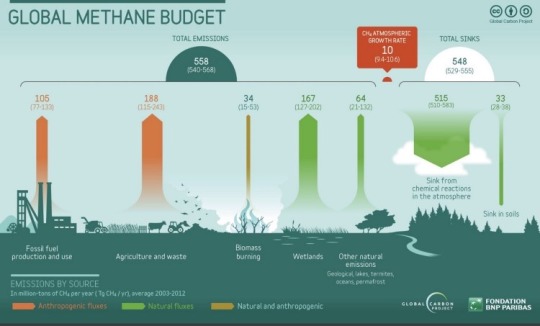
Now let’s put that to the side and show how these groups misrepresent info
The global cattle population amounted to about one billion head in 2022, up from approximately 996 million in 2021.
But this number varies from year to year. Some years less. Some years more.
2022** 1,009.69
2021 996.17
2020 982.87
2019 978.68
2018 975.06
2017 984.53
2016 978.77
2015 969.26
2014 1,008.57
2013 1,005.29
2012 1,001.72
But the activists.. well they wanna make it different.
There Are More Than 1.5 Billion Cows on the Planet.Aug 4, 2017
I love how they ignore data to make up their own numbers.
Also the fact that when you point out wild animals like buffalo and how they used to cover the earth at numbers like 30-60 million, deer at 30 million, etc. Yet the methane.. didn’t destroy the earth then.
Again let’s put that to the side and go with the empathy angle that’s next used.
All too often, however, the public is misguidedly led to believe that any captive animal facility—especially those with exotic wild animals—is a sanctuary. The operators of these “pseudo-sanctuaries” pray on this misconception to buy and sell wildlife and get financial support from the unwitting public.
This is right from an activists site that’s trying to teach people what a good sanctuary is over a bad one.
There is no federal definition of sanctuary in the U.S., and as a result, no requirements for who or what can use the term. While there is a widely-accepted global definition of what an animal sanctuary is, it is not a legally enforced definition.
Which means. Anyone can use the term.
https://www.washingtonpost.com/science/2020/01/09/her-sanctuary-was-supposed-rescue-animals-hundreds-died-advocates-say/
Now being a farmer. We have standards we must follow. Many farms will have health inspections, vets and numerous people checking constantly on the animals care, welfare, barn conditions, health and safety, etc.
Many of us go to college for animal husbandry, agriculture and the like so we can apply for grants, loans and benefits for our farms. Running a farm is no small undertaking. But from what I can research, anyone can have a bunch of cats and dogs and claim they are a sanctuary. The issue here is that you have no skills or training. No plan in place for funding so many start seeking donations. When you have competing groups all vying for the same small group of donators, the animals must get more pitiful, the stories bigger and the videos heartbreaking. To increase your donators you must now try and appeal to empathy.
However when the animal has no quality of life anymore and must live by the daily care of a human caretaker. Who’s life really is dependent on the donations they bring in. Now the line from exploitation they claim farmers do to what they do becomes far more unclear.
This is ok?
But farming healthy animals that never suffer pain or hunger is bad?
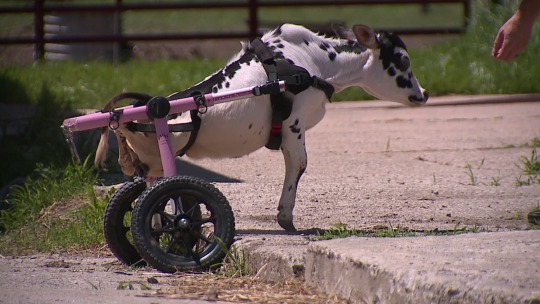
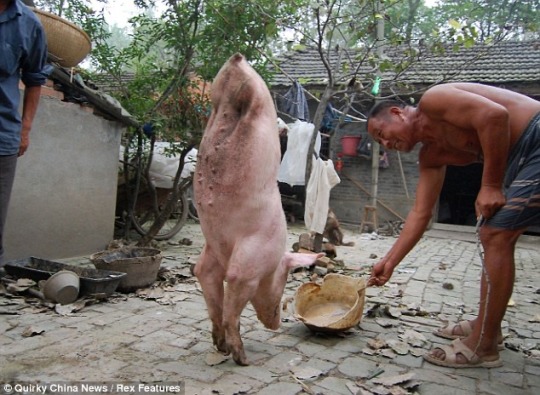
16 notes
·
View notes
Photo
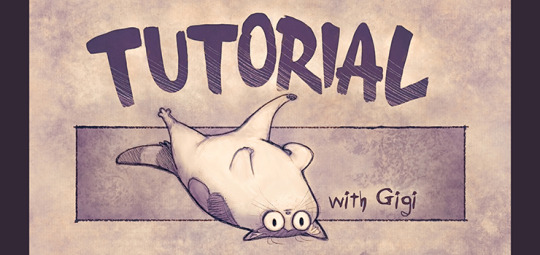
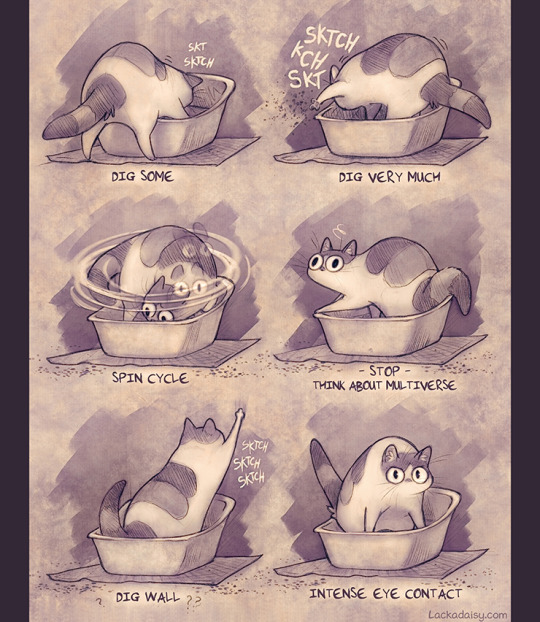
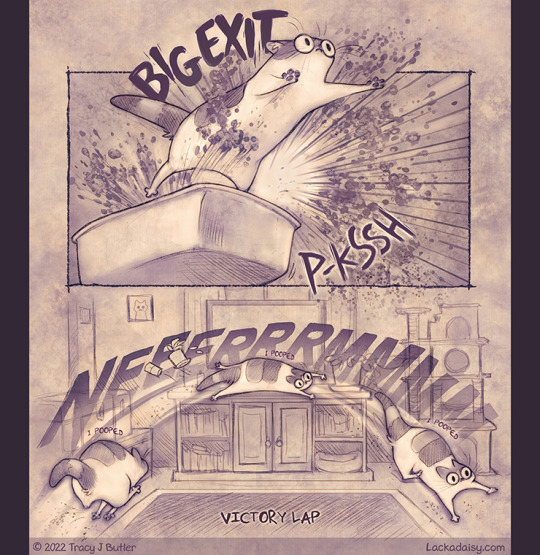
Tutorial - my cat wanted to share with you some tips and tricks.
———————————————–
Originally from my Patreon, where there’s a little more to this.
(Patrons get extra stuff and early releases)
31K notes
·
View notes
Photo
I’ve said it once and I’ll say it again. If you quit being a farmer because you don’t like abuse. You where the problem and you where the one abusing. A good farmer does not abuse. A good farmer ensures good care.
Humane death isn’t slaughter, that’s a misnomer. Humane death is painless and quick. The way all deaths should be. If your animals are that scared and stressed. You have caused the issue and you are not doing your job right. You are causing the suffering and its good that you’ve realized you cannot go this job correctly and have left it. But it’s wrong to say no one else can so no one should.
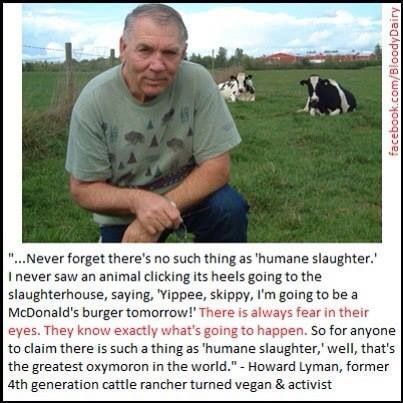
106 notes
·
View notes
Note
Ive seen a post by a pro-animal rights person that subsistence hunting in the west is a myth, since poor people cant afford spending 2-3 weeks in the countryside and the majority of poor people are urban.I think this argument is complete bollocks, and I know for a fact that lower-class hunters in the west exist, but I want to share it here so people can tear it to shreds.
I think they’ve forgotten things like weekends? Timing your holidays to hunting season. My area they will stop on the side of the road, walk in after work and sit for a few hours in a location they’ve had luck in before. Rabbits they tend to pick off with a walk in the evening in forested areas. Partridge are much the same. With animals like those it’s nothing like weeks of planning or some massively planned hunt. No. These types of animals are not like deer or moose and far easier to catch. With deer too they are creatures of habit. They will go to the same spots over and over. So if you knew where one was during the year. Then at hunting time you may have a better chance at them. With animals like caribou then they have migrations and if you know the routine then you will have far better luck getting one of those too. Hunting is luck and skill mixed together. But for some people it’s critical for how they get winter meat. Many of those that argue with hunting have no idea what it’s like to be hungry in a place where supermarkets and stores are limited and costly.
9 notes
·
View notes
